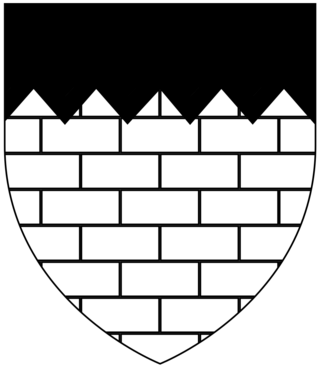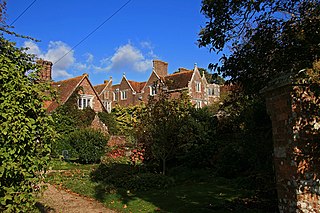Related Research Articles
John Clarke, also known as John Clark, John Clerk, and John Clerke, was an English politician and Justice of the Peace who sat in the House of Commons from 1653 through 1660, and was a colonel in the Parliamentary army between 1651 and 1659.
Sir Thomas Barnardiston, 1st Baronet was an English baronet, landowner, soldier and MP who sat in the House of Commons at various times between 1640 and 1659. He fought on the Parliamentary side in the English Civil War.
Sir Hugh Bethell was an English politician who sat in the House of Commons at various times between 1654 and 1679.
John Ramsden was an English politician who sat in the House of Commons in 1659 and 1660.
Thomas Cole (1622–1681) was an English politician who sat in the House of Commons in 1656 and 1660.
Henry Arthington was an English politician who sat in the House of Commons at various times between 1646 and 1660.
Sir Richard Grobham Howe, 2nd Baronet, was an English politician who sat in the House of Commons at various times between 1656 and 1695.
William Owfield was an English landowner and politician who sat in the House of Commons in 1645.

Thomas Reynell of East Ogwell, Devon, was an English lawyer and politician who sat in the House of Commons at various times between 1654 and 1689.
Henry Mildmay was an English politician who sat in the House of Commons at various times between 1654 and 1692. He fought in the Parliamentary army in the English Civil War.
William Lisle was an English lawyer, landowner and politician who sat in the House of Commons from 1659 to 1681.
Thomas Turgis was an English politician who sat in the House of Commons between 1659 and 1704, eventually in 1701 becoming the Father of the House, as the member with the longest unbroken service.
Thomas Chaplin (1591–1672) was an English draper and politician who sat in the House of Commons in 1659 and 1660.
William Stanley was an English merchant and politician who sat in the House of Commons in 1660.

John Tregonwell of Anderson Manor, Dorset was an English politician who sat in the House of Commons between 1659 and 1679.
Sir William Vincent was an English merchant and politician, who sat in the House of Commons in 1660. He acted for the City of London during the Restoration.
Bullen Reymes was an English courtier, diplomat and politician who sat in the House of Commons from 1660 to 1672. He fought in the Royalist army in the English Civil War.
Henry Bromley was an English landowner and politician who sat in the House of Commons in 1660.
Thomas King was an English merchant and politician who sat in the House of Commons at various times between 1659 and 1679.
Sir Philip Skippon, FRS, of Foulsham, Norfolk, Wrentham and Edwardstone, Suffolk, was an English traveller, writer, diarist, landowner and MP.
References
This article relies largely or entirely on a single source .(July 2014) |